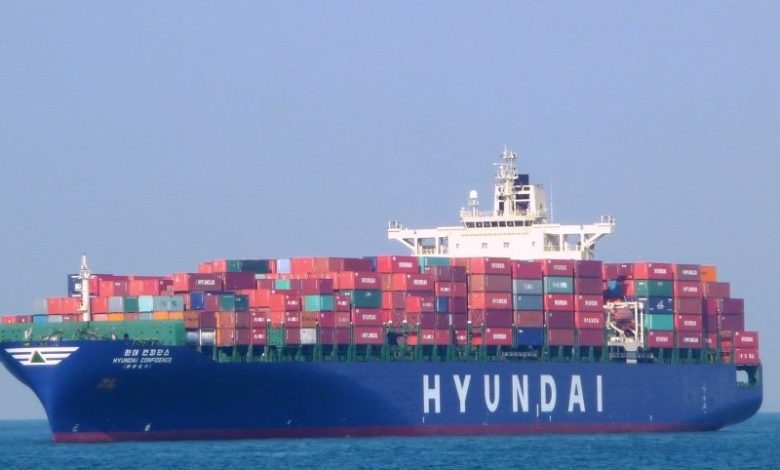Maersk and HMM rebuff acquisition talk

With news providers in South Korea and Europe once again linking Maersk Line with buying Hyundai Merchant Marine (HMM), a spokesperson for the giant Danish line has rebutted the reports as “rumours and speculation”. The reports have also been rubbished by HMM in Seoul.
When it was announced last month that financially struggling HMM was seeking to join 2M, the alliance between Maersk and MSC, it sparked a wave of conspiracy theories as to the real motive behind the move.
Chief among those was analysts Drewry who posited in a monthly newsletter: “Maersk’s aim is not actually having HMM as a junior alliance partner, but rather to prepare to acquire it or joint venture with it (the same way Maersk courted Sea-Land and then P&O Nedlloyd before buying them).”
The theory was denied at the time by both Maersk and HMM. Since then however a Reuters interview with Maersk boardmember Jakob Stausholm only served to add fuel to the fire.
“If you look at the history of Maersk Line, we have achieved our leadership position by the combination of organic growth and acquisitions. If the right opportunity is there we will look into it,” Stausholm told Reuters.
“As per our policy we do not comment on rumours and speculation,” a spokesperson for Maersk Line told Splash today, adding: “What we can confirm is, as you know, that 2M is in discussions with HMM on the possibility of HMM joining the 2M vessel sharing agreement when their membership of the G6 alliance expires in 2017.”
Meanwhile, a spokesperson for HMM in Seoul told Splash today: “The alleged M&A rumour that you referred to is groundless.”
Lars Jensen from Copenhagen-based SeaIntel Consulting told Splash he had nothing to back up the acquisition rumours. He did, however, suggest it was conceivable.
“Whilst there is no tangible information pertaining to Maersk Line buying HMM,” Jensen stressed, adding: “It is worthwhile keeping four key facts in mind: Maersk Line has an ambition to grow. They have shown willingness to grow by acquisition, most recently by being initially interested in bidding for APL.”
In a market with severe overcapacity, large-scale organic growth becomes exceedingly expensive and destabilises the market, Jensen noted.
“As large losses loom in 2016, we have already seen owners in Singapore and in the Arab Gulf states pull the plug and sell in order to stem future losses, and hence a sell of HMM at an attractive price can certainly not be ruled out,” Jensen argued.
There is also another aspect which would point to HMM being a good supplement to Maersk Line, Jensen suggested. HMM has a range of relatively new 8,000 to 10,000 teu vessels which would allow Maersk Line to replace the ageing S-Class vessels from the mid/late-1990s without needing to destablise the market further by ordering new replacements for these vessels.
“Of course, part of the value would lie in boosting the market position on the transpacific, which in turn would require Maersk Line to retain a high percentage of the HMM customers – something Maersk Line was not able to do when they took over P&O Nedlloyd 10 years ago,” Jensen concluded.
Last month Maersk Line dismissed an Alphaliner report linking Israel’s Zim joining 2M as “rumours and speculation”.
French box analysts Alphaliner claimed Zim, which currently belongs to no alliance, could be “roped” into 2M.
Splash sources had earlier hinted that Hamburg Sud was also in negotiations to join 2M, something a Maersk spokesperson also dismissed as rumours.
